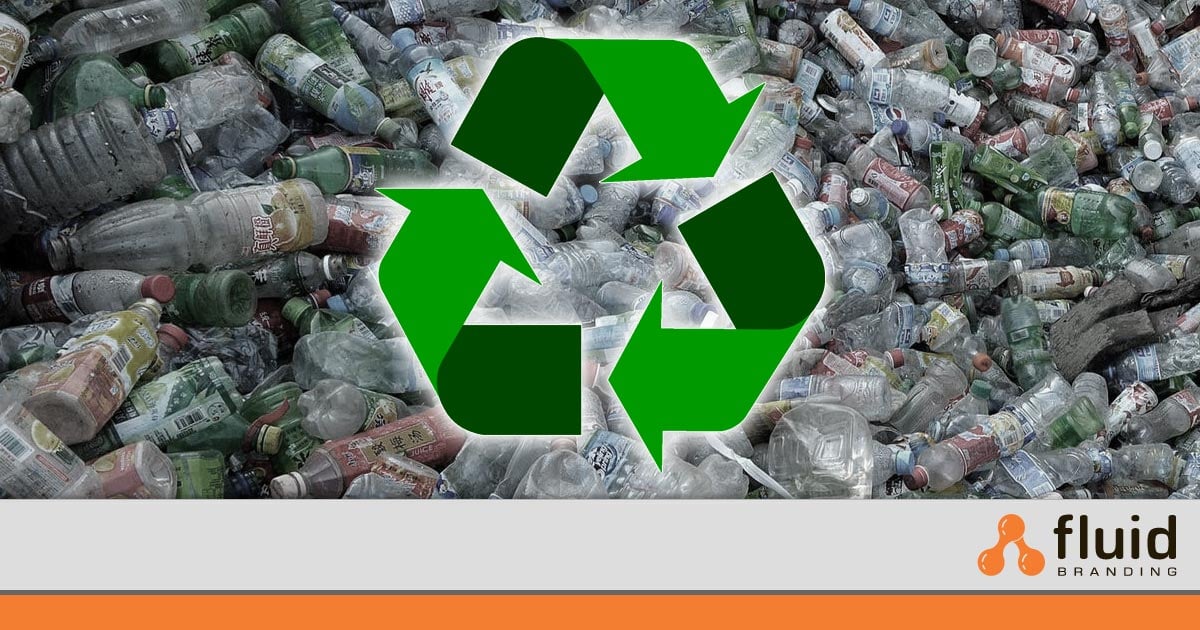Are we too late to stop the climate crisis?
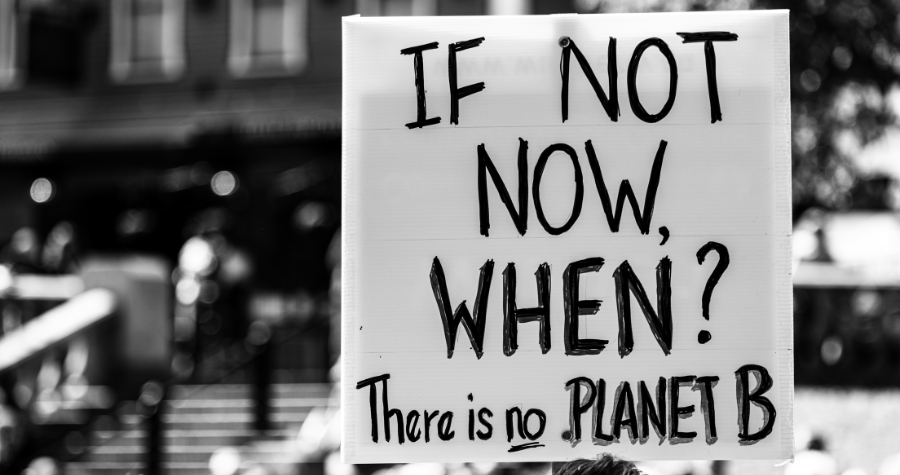
Even though the planet may be warming up, good news: we’re definitely not out of options yet.
Phew!
That’s because any climate-positive change, however small, will have a big impact on keeping temperature increases as low as possible. The aim is to eventually have the planet’s temperature rise come to a halt - and then (fingers crossed!) a decrease.
And, well, it goes without saying really: we need our planet, and we need it to stay as safe and stable as possible for future generations.
“No matter what we do now, it’s too late to avoid climate change”.
-Sir David Attenborough
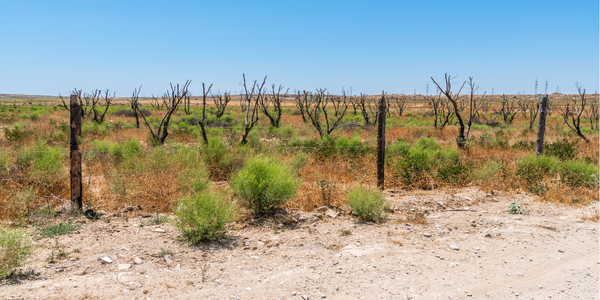
It’s not just about CO2 levels
When it comes to the climate crisis, however, it’s not just about our CO2 output.
It’s also about reducing the amount of waste we create.
It’s about protecting our endangered species and preserving their habitats.
It’s about ensuring our planet stays as wonderfully diverse and balanced as it is.
Because at the moment, we’re throwing it off.
That’s why we need to focus on stabilising and improving our environmental impact on the planet, be it minimising temperature rises through burning less fossil fuels, or protecting vulnerable species and environments.
Here are just a few examples of how we can help reduce the effects of the climate crisis.
-1.png?width=600&height=300&name=blog%20images%20(1)-1.png)
Our planet is heating up too fast
Global temperatures are predicted to rise by 3.2℃ by 2100, which would lead to catastrophic consequences for… everyone.
If there’s even a small rise of 1.5℃ of the earth’s temperature, there’s a 100% chance of flooding, putting a lot of coastal communities at risk.
If there’s a rise of 2℃, well, you can say goodbye to our glorious (and super important) coral reefs.
A 1.5℃ or 2℃ change in temperature might not sound like a lot, but our planet’s ecosystems are extremely delicate, and any imbalance may cause the complete annihilation of environments and species.
Scary, right?
Solution: it’s time to cool it down
That’s why the 2015 Paris Agreement set a goal (or, better yet, a promise) of keeping the earth’s temperature rise below 1.5℃.
This means we’d need to stop burning fossil fuels and cut our global emissions by 45% before 2030, and 0% by 2050.
That’s why we’ve pledged to be Carbon Net Zero by 2030, a whole 20 years before the 2050 target.
-1.png?width=600&height=300&name=blog%20images%20(2)-1.png)
We’re running out of space
From 2000 to 2019, our domestic waste rose by 65% globally. This means that in 2019 there was an enormous 95.1 billion tonnes of waste being created by us. More than 50% of this was sent to landfill, with the rest of it burnt up in incinerators (releasing planet-warming gases - great).
Solution: it’s time to recycle more
We love to support brands that are trying to reduce the amount of rubbish we send to landfill.
Circular & Co. is a great example, because every bottle is actually made from 14 single-use plastic bottles, and the finished product is 100% recyclable.
Plastic is a big problem, there’s no denying it.
A whopping 75% of plastic ends up in landfills and historically, only 9% has ever been recycled. If we don’t do anything about our plastic epidemic, there’ll be 12 billion tonnes of plastic in our oceans by 2050. To put that into perspective, that’s x35,000 heavier than the Empire State Building.
Sadly, it’s not just us suffering. Turtles eat plastic bags thinking they’re jellyfish, and plastic has now been found in the stomachs of creatures in the deepest depths of the ocean. Oh, and microplastics are now in our food chain, so there could even be some plastic in your diet right now.
That’s why we’re all about making sure more plastic gets recycled and doesn’t end up in our oceans. We love working with brands like Ocean Bottle, who, with every bottle purchased, fund the collection of the equivalent of x1,000 plastic bottles in ocean plastic.
Our vulnerable habitats need preserving
With 60-70% of the world’s ecosystems degrading faster than they can recover, we need to act now to preserve them.
The Amazon is home to 1 in 10 of all known species on earth, but a third of it is already threatened by deforestation.
Lots of forests are being cut down for soya production (and better yet, soya to feed factory-farmed pigs and poultry), and they can’t regrow themselves fast enough.
Also, over 90% of The Great Barrier Reef is bleached now (a phenomenon caused by rising water temperatures causing the tissues of the coral to turn white from stress).
Some of the most majestic environments on earth are suffering because of us, and that’s why we support our teams in helping charities that are changing the world.
From beach clean-ups to match-funding donations, we’re trying to protect the environments suffering most from climate change.
Solution: it’s time to regrow our forests
Tropical rainforests are often referred to as the “lungs of our earth”. That’s just how amazing trees are.
We need them to help with carbon offsetting, cleaning our air, stopping soil erosion, and providing habitats for an innumerable number of species.
Literally, everyone depends on trees.
That’s why we’ve partnered with Ecologi to launch our #ATreeWithEveryOrder campaign. We’re trying to help to reduce deforestation, as well as support damaged habitats.
Our species need protection
Turtles, polar bears, manatees… they all need us.
In the UK alone, 25% of all species are in imminent danger of disappearing forever.
That’s because, due to the climate crisis, there’s a scarcity of food, a rise in diseases and a lack of safe habitats.
Solution: it’s time to put them first
That’s why through our #ATreeWithEveryOrder initiative we aim to improve the survival rates of endangered species by protecting their environments.
Check out how we’ve helped support mangrove reforestation, in turn providing a safe haven for endangered species.
Say no to greenwashing
Greenwashing is just as dangerous as doing nothing.
Yeah, we said it.
Supporting a false narrative of positivity leads to more people being confused about what consequences their actions have, taking longer for beneficial change to happen.
That’s why we love statistics.
We love hard and fast facts that are traceable, and that we know we can trust.
We’re not perfect, we know that, but we’re trying to be the best we can be by providing you with as much clear-cut information as possible.
We want to help you make better decisions by supplying the facts.
We always said we were more than just merchandise!
That’s why we do what we do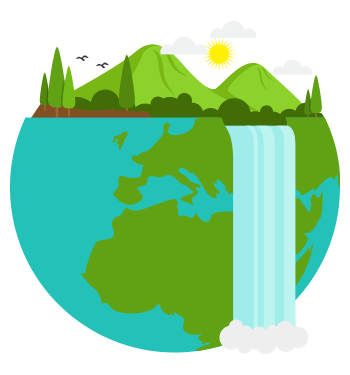
We know it can be overwhelming thinking about just how much the planet needs us.
That’s why we’re here.
We want to shake up not just our industry, but how everyone thinks of the products they buy.
From making conscious decisions about what you purchase to the lifecycle of each and every product; it all matters, to us.
Taking those small, but powerful, steps towards more sustainable, environmentally friendly choices will make a big impact down the line - and we can’t wait.
If you’d like to find out how else we’re trying our best at tackling the climate crisis, check out our Fluid Futures page.
And if you’re ready to make the swap to more sustainable merchandise, download our B Corp & Social enterprise brochure now to take your brand on a sustainability journey you won’t forget.


.png?width=600&height=300&name=blog%20images%20(3).png)

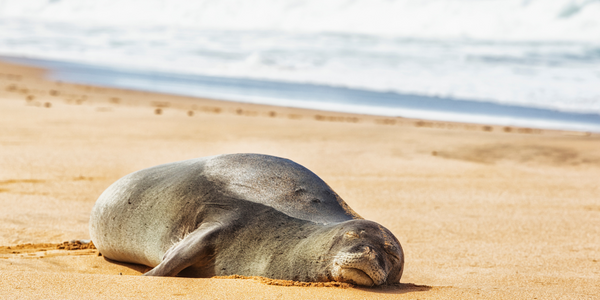

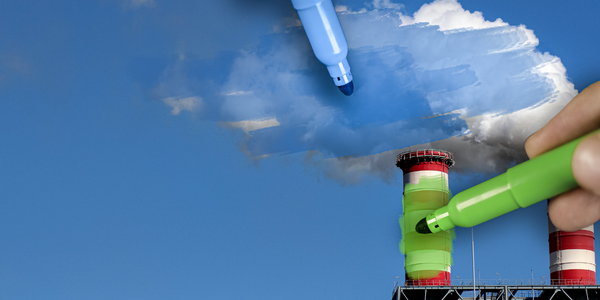

.webp)
